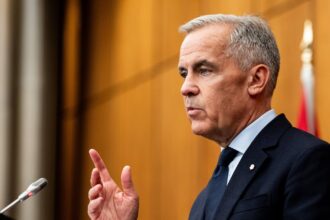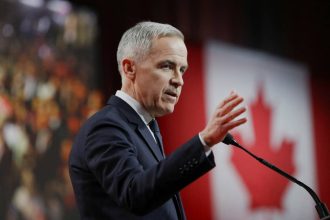In a bold policy move that has divided addiction specialists across the nation, Saskatchewan Premier Scott Moe announced yesterday that his government will introduce legislation this fall allowing for the involuntary treatment of individuals with severe substance use disorders. The unprecedented measure, slated to take effect in early 2026, positions Saskatchewan as the first Canadian province to implement such extensive compulsory treatment protocols.
“We’re taking decisive action on what has become a devastating crisis,” Premier Moe stated during a press conference in Regina. “When someone is in the grip of severe addiction, their capacity to make life-saving decisions is compromised. This legislation provides a pathway to intervention before it’s too late.”
The proposed legislation would enable health authorities and law enforcement to detain individuals for up to 90 days in specialized treatment facilities if they’re deemed to present an imminent risk to themselves due to substance use. The determination would follow a clinical assessment and review process, according to details provided by the Ministry of Health.
Opposition to the measure has been swift and substantial. Dr. Helena Weinstein, Director of Addiction Medicine at the University of Toronto, expressed significant concerns about the approach. “Decades of evidence suggests that coerced treatment produces substantially poorer outcomes than voluntary engagement,” Weinstein told CO24 News. “We risk not only violating civil liberties but potentially creating trauma that makes recovery more difficult.”
The Saskatchewan Medical Association has requested formal consultation before the bill advances, citing the need for evidence-based approaches to addiction treatment. Meanwhile, civil liberties groups are already preparing legal challenges, arguing the legislation potentially violates Charter rights.
Supporters, including several family advocacy groups, counter that the extreme nature of the addiction crisis demands extraordinary measures. “We’ve watched loved ones deteriorate while waiting for them to ‘hit bottom’ or choose treatment,” said Miranda Johnson, founder of Saskatchewan Families for Recovery. “Sometimes, intervention is the only humane option left.”
The province has committed $175 million for implementation, including the construction of three specialized treatment facilities in Regina, Saskatoon, and Prince Albert. The funding package also includes resources for expanded outpatient services and aftercare supports.
Health policy experts note that British Columbia previously considered similar legislation but ultimately pursued alternative approaches following extensive consultation with medical professionals and those with lived experience of addiction. Public health officials in Canada continue to advocate for expanded voluntary treatment options, harm reduction services, and addressing root causes of substance use.
As debate intensifies, the fundamental question remains: in addressing the devastation of addiction, where should society draw the line between personal autonomy and protective intervention? Saskatchewan’s bold experiment may soon provide some answers—but at what cost to those it aims to help?







